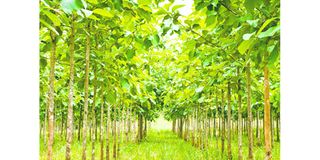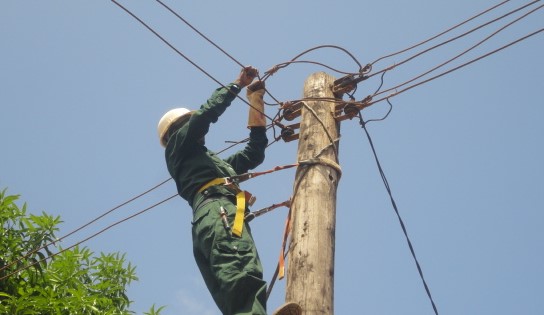Mufindi residents take up ‘tree farming’ to generate income

Mufindi. Mufindi residents are increasingly finding it important to ‘farm’ trees after learning of its economic benefits from people who already engage in ‘tree farming’.
A key share of the economy of the people of Mufindi District in Iringa Region is now dependent on agribusiness which helps them earn money from selling the trees.
And, to accelerate the achievements, the Tanzania Forestry Services (TFS) support the communities around the state-run Sao Hill farm in the district, by freely distributing one million free seedlings every year.
Bahati Tweve, a tree farmer, says tree cultivation is the only crop farming that is uplifting smallholder farmers by boosting their incomes and that of the national economy from selling the trees.
“Trees have changed our lives here in Mufindi, at the household and individual levels from selling the trees,” Tweve says. He is a resident of Kihohela Ward who owns 70 acres of trees.
He says this form of agriculture has helped to improve their living standards, enabling them to build good houses, educate their children and buy bicycles, tricycles and motor bicycles to meet their transport needs.
In that regard, he calls on the government to officially recognise the farmed trees as assets which can be used as collateral in borrowing from financial institutions to expand their farms.
“We earnestly ask the government to recognise our trees as green assets and collateral so that we can borrow from financial institutions - just as houses, etc, are considered appropriate collateral,” he says.
Mr Festo Pius, a farmer and resident of Magunguri Village who owns 20 acres f trees, says a large percentage of horticultural farmers support agro-forestry, as it is their main source of income compared to other crops.
“Currently, agro-forestry is our mainstay in economic growth. With the exception of short-term crops such as potatoes and beans, trees are our main source of income now,” he says.
He adds that the government collaborated with various organisations to encourage the villagers to take up tree farming as a way of environmental protection - and also a way to earn from selling the trees.
“The Sao Hill Tree Farm has been at the forefront of encouraging people to embrace the concept and practice of tree farming as well as environmental protection and its benefits is investment in forest products,” he says.
The Sao Hill Farm chief conservation officer, Juma Mwita, says the Mufindi District economy is rapidly growing due to tree sales.
Mr Mwita says the presence of the Sao Hill Tree Farm in Mufindi has been contributing to economic growth in various sectors such as manufacturing, infrastructure and construction.
“The economy of this area is growing rapidly - which is why the government saw the need for the people to participate in the business with the aim of increasing their incomes through various sectors,” he says.
Mr Mwita also says that they distributed free seedlings worth more than Sh200 million to individuals and institutions that were in need of them.
Recently, the Sao Hill Farm distributed one million seedlings worth more than 200 million free of charge to local communities and institutions so that they can feel part of the forestry efforts, he said.




